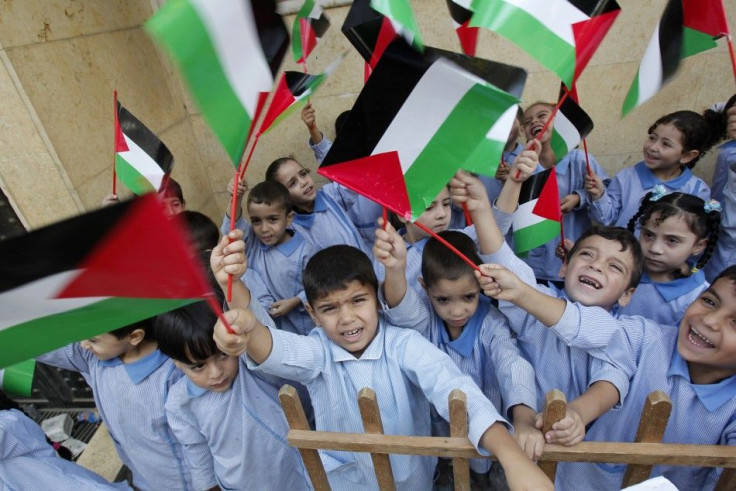Calls Growing for Israel to Release Palestinian Child Prisoners

In the wake of Israel’s historic release of more than one-thousand Palestinian prisoners in exchange for the freedom of soldier Gilad Shalit, one lawyer is highlighting the fact that dozens of Palestinian children under the age of 18 remain languishing in Israeli jails.
Israel has thus far released about 500 Palestinian prisoners and will free roughly the same amount next month. But apparently, none of them will be children.
Gerard Horton, an attorney at Defense for Children International, a child rights non-governmental organization founded in 1979, told Australian radio that 164 Palestinian children are imprisoned in Israeli jails, some on charges as minor as throwing stones at Israeli soldiers.
Horton said that he thinks Hamas, the Palestinian militant group that rules Gaza, and negotiated for the prisoners’ release, focused more on freeing compatriots who had been jailed the longest – in some cases thirty years or more.
Regardless of who is to blame, Horton blasted Israel for prosecuting and imprisoning children as young as 12 years old.
“The prosecution and detention of children in a military court system shouldn't be happening, certainly not to the extent that it is,” he said. “To prosecute children as young as 12 in a military court system, on accusations of throwing stones in most cases, I think is inappropriate…. There is such a lack of due process in the system, in any individual case it's often quite difficult to know whether someone would possibly be innocent or guilty.”
Horton said that in many cases, following reports of stone-throwing at Israeli soldiers by Palestinian children, the Israeli army will enter the village in question a few days later and “start arresting children from a pre-prepared list, the children will be painfully tied and blindfolded, put into the back of military vehicles and taken off into the night and their parents won't be told why they've been arrested or where they're being taken to.”
The attorney added: “they [the children] then be taken to an interrogation center and usually subjected to both physical and verbal abuse until they provide the confession, and in about 30 percent of the cases we handle the confessions are actually written in Hebrew, a language they don't even understand.”
Horton added that the Palestinian children are typically not advised of their rights to remain silent and often don’t see a lawyer until a week after detention.
“Most of them have provided a confession and then most of them are denied bail, so the quickest way for them to get out of the system is to plead guilty whether they committed the offence or not,” he further explained.
Other parties are also calling for the release of imprisoned Palestinian minors.
Jean Gough, UNICEF Special Representative in the occupied Palestinian territory, said in statement: “UNICEF calls on the Israeli Government to release Palestinian child detainees so that they can be reunited with their families. As stated in the Convention on the Rights of the Child, the detention of children should be used only as a measure of last resort and for the shortest appropriate period of time.”
Similarly, Proinsias De Rossa, Irish Labour MEP and President of the European Parliament's Palestine Delegation (DPLC), demanded the release of jailed children as part of the prisoner swap program between Israel and Hamas.
“The positive potential of the prisoner swap currently underway could be greatly enhanced if these children were unconditionally released,” he said. “For Israel this would not only bring her into compliance with International Law but would be a generous humanitarian gesture which would enhance her reputation globally and in the region.”
De Rossa added: “The detention and trial of children by military courts and their mistreatment is directly contrary to the Geneva Conventions on the treatment of children by an occupying power.”
However, last year, a spokesman for the Israeli Defense Forces defended the detention of children to ABC.
“Rock throwing is a serious offence, placing others at significant risk and endangering both the public and regional security,” he said.
© Copyright IBTimes 2025. All rights reserved.





















